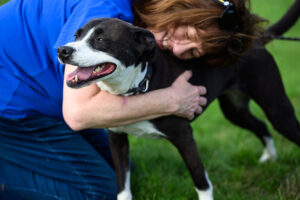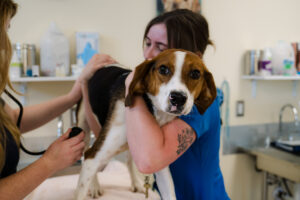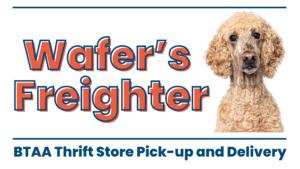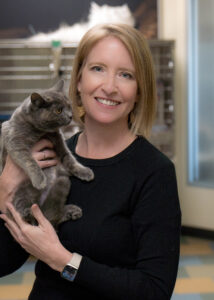To create and support meaningful connections by enhancing the lives of dogs, cats, and the people in our community who love them.
At BTAA we believe sheltering pets should be the last resort. Our goal is to reduce the need for pets to be sheltered by offering proactive programs that support the connection between people and their pets including:
Pets for Life (PFL): PFL is a grassroots approach to meeting our communities needs. A dedicated team member works within specific neighborhoods knocking on doors offering access to free services to community members and their pets. These services include spay and neuter surgeries, vaccines, pet food, supplies, and minor medical. Currently our program is working with 800+ clients and our focus area is in Sagle.
Helpline: Members of the community can call our helpline to ask questions, discuss medical and training needs, or to request assistance with their pets. This program is expected to field 2400 inquiries this year.
Home To Home™ (HH): HH is an online pet rehoming program supported by BTAA. This program was created by PAS/BTAA to provide our community with an alternative to surrendering to the shelter. Due to Covid-19, PAS has limited the number of animals in our facility and has been asking people to utilize this program (in non-emergency situations only) before surrendering to the shelter. As of November 11, 2020, HH has helped with 450 adoptions this year.
Pet food bank: Our pet food bank provides free dog and cat food to pets in need. On average our food bank provides 7 tons of dog and cat food to community members each year.
Voucher program for spay/neuter: BTAA assists people with getting their pets spayed and neutered by providing low cost spay and neuter vouchers to community members to use at local vet clinics. Over 480 subsidized vouchers have been provided to our community this year.
Temporary Loving Care (TLC): Our TLC program provides temporary boarding for pets of domestic violence victims and for individuals who have to be admitted into the hospital for care and have no friends of family to watch their pet. During the Covid-19 pandemic, PAS has also assisted people who are experiencing homelessness and are in need of temporary assistance with housing their pets.










